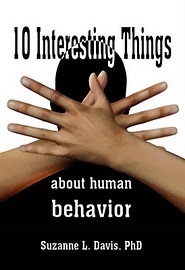More on this book
Community
Kindle Notes & Highlights
Read between
February 7 - February 7, 2020
Of course our attitudes affect our behavior. But it is also true that our behavior can have a direct effect on our attitudes under the right circumstances (Eagly & Chaiken, 1993).
You can learn to like something (or at least become more comfortable with it) by “just doing it” and continuing to do it, even if you initially don’t want to.
Although we can think logically, it doesn’t mean we always do (Shermer, 1997). Sometimes we’re torn between two feelings or indecisive about what we should do. It doesn’t automatically mean we’re dim, mentally lazy, or bad thinkers. It means we’re human.
“Human beings can be inconsistent, and anyway what seems inconsistent to one is perfectly consistent to another.”
If body language is sending an obvious message, you don’t need an “expert” to read it, and if it is so subtle that someone has to claim expertise to read it, you should question whether it is being over- interpreted.
As a general rule, we feel less identifiable and less responsible for our individual actions when in the presence of a large number of people. We temporarily lose our sense of individuality and psychologically become “part of the crowd.”


